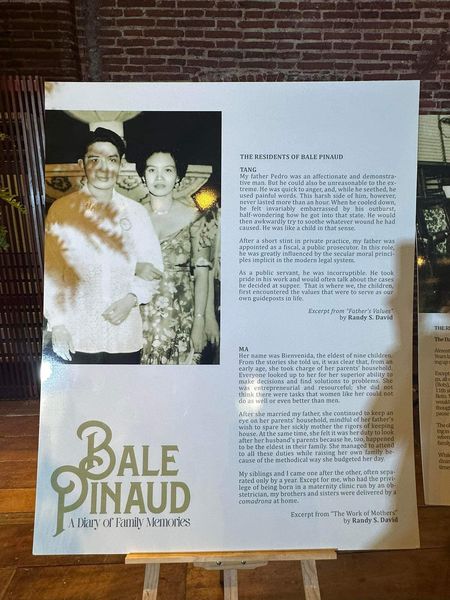17,861 total views
Homily for the 33rd Sunday in Ordinary Time, 19 November 2023, Mt 25:14-30

Mula nang naging bishop ako, I have been invited to become a BOT (Board of Trustees) member of so many corporations and foundations. These entities have a legal personality to own resources, both solid and liquid assets according to Philippine laws. Most of them are nonstock, nonprofit. Ibig sabihin, if they generate any income, it is not meant to benefit any of the board members. Hindi kami stockholders who will enjoy shares of dividends from the corporation’s net income, which are called “profits”. Bakit? Kasi hindi naman kami owners or shareholders. We are TRUSTEES. The assets may have been transferred to the corporation by individuals or families who established the foundation and intended it as a lasting legacy—to continue its vision and mission through its programs and projects.
Sa Tagalog, the best equivalent word is KATIWALA, from the root word TIWALA, meaning Trust. It is a relational word. Ganyan sa Tagalog—basta nilagyan ng KA (kapatid, kaibigan, katrabaho, kakilala, kabaro, kalaro, etc.) relational iyan. Sa KATIWALA, may nagtitiwala at may pinagtitiwalaan. The tiwala (trust) is what matters. The resources entrusted are really just a token of that trust; the more important thing is the relationship.
Our Gospel today is often entitled “The Parable of the Talents”. Hindi ko type, kasi masyadong focused sa assets na para bang walang pinagkaiba sa pinahiram ng pera na sinisingil pagkatapos na may interest. No. I’d rather entitle it “The Parable of the Trustees”. They were chosen by the master because they enjoyed his trust. Probably because he had worked for some time with them and known them enough to entrust his assets to them. Why do we say so? Because the writer says the master entrusted different amounts to them: five to the first, two to the second and one to the third, and adds “TO EACH ACCORDING TO HIS ABILITY.”
When he comes back, he evaluates their performance, and the ones who prove trustworthy are entrusted with GREATER RESPONSIBILITIES. (They are not rewarded with money but with greater trust.). They are actually three but we group them only into two: the ones who proved themselves to be truly trustworthy, and the one who broke his trust.
Like I said earlier, trust is a relational word; it is founded on a relationship. Therefore it works both ways. It’s not just the master who’s investing his trust on his stewards, the stewards were also being invited to trust their master—his wisdom and intentions. Before the master’s trust was broken by the third steward, that steward’s trust had been broken first. What broke that steward’s trust? I propose two things: one, what he heard people say about his master—which poisoned his attitude and made him say to himself, “What’s the point in working for this master? He will only use me to enrich himself.”
Secondly, his trust is also destroyed by his own envy and insecurity. He probably said to himself, “why only one for me? Why does he trust me less than the other two?” He did not trust the master’s reason. He just made up his mind that the master was unfair. This applies very well to people in this world who already have enough resources but are still not happy because they compare themselves with those who seem to have more and end up feeling sorry for themselves and asking: “why do others have more and I have less?” And yet, I have also met a lot people who are poor, or who have much less in life but grateful for what they have and are able to maximize whatever little they have. (I count the David family that grew up in the Bale Pinaud among them.)
In the Gospel, the amounts of money entrusted don’t really matter much to the master—whether 5, 2, or 1. What matters most is that all three are trusted. In the end, however, only the first two prove themselves trustworthy. They both made the most if what had been entrusted to them. They both became the best version of themselves.
(I hope you see why this makes me think of us 13 children of our parents who all grew up with very meager resources. How different each one of us was as a person—in terms of gifts, looks, intelligence, personality, but how we were guided by our parents to consider ourselves blessed, never to envy others or try too hard to prove ourselves to be better than anyone but to aspire only to be the best version of ourselves. I hope you take time to read our stories in the book which we are launching later today, the “Bale Pinaud”.)
The Church has given a name to this important principle of Christian discipleship: stewardship. They have been laid out beautifully in that pastoral letter written by the US Conference of Catholic Bishops in 2003, “Stewardship: A Disciple’s Response”. That letter could be summarized into one sentence: “As Christian stewards, we receive God’s gifts gratefully, cultivate them responsibly, share them lovingly in justice with others, and return them with increase to the Lord.”
They are the four basic very basic principles of stewardship, which you can take home with you: 1) to develop a sense if grace or to receive God’s gifts with gratitude, 2) to cultivate them responsibly, 3) to develop a sense of justice by sharing them generously with others (especially those who have less), 4) to return them to the giver with increase.


















